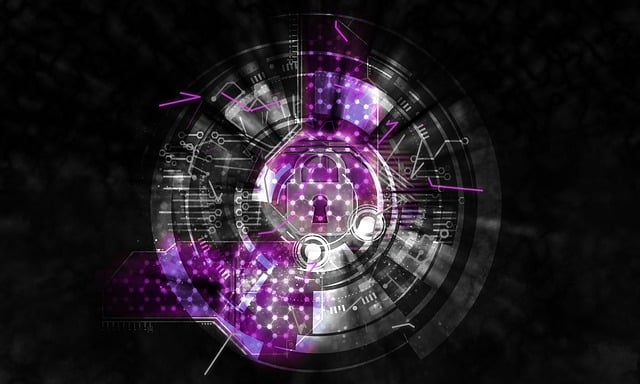So You Want to Break into Remote Cyber Security Jobs?
Thinking about diving into the world of remote cyber security? Exciting times ahead! With the increasing digitization of the world, the demand for cyber security professionals is skyrocketing. If you’ve got a knack for problem-solving, a keen eye for detail, and a passion for staying one step ahead of cyber threats, then this field might just be the perfect fit for you.
But don’t fret if you don’t have a technical background or years of experience in the field. Many entry-level remote cyber security roles are open to individuals with a diverse range of skills and educational backgrounds. By focusing on building a strong foundation of knowledge, honing your skills, and staying up-to-date with the latest industry trends, you can position yourself as a competitive candidate in this dynamic and ever-evolving field.
Getting Started in the World of Remote Cyber Security
Are you eager to dip your toes into the world of remote cyber security? Exciting times lie ahead as you venture into this dynamic field that is constantly evolving. It all starts with understanding the basics of cybersecurity and how it applies to remote work setups. As you take your first steps, familiarize yourself with essential concepts like encryption, network security, and threat detection. These foundational pillars will provide you with a solid understanding of the landscape you’re entering. Remember, everyone starts somewhere, and building a robust knowledge base is key to your success.
Once you feel comfortable with the fundamentals, it’s time to consider honing your technical skills. Proficiency in areas such as firewall management, vulnerability assessment, and incident response can set you apart in the competitive world of remote cyber security. Look for opportunities to practice these skills through online courses, hands-on labs, and virtual workshops. Embrace the learning process and don’t be afraid to experiment with different tools and techniques. The more you immerse yourself in the technical side of cybersecurity, the more confident and competent you’ll become in securing remote systems effectively.
What Qualifications Do You Need for Entry Level Remote Cyber Security Roles?
To land an entry-level remote cyber security role, having a strong educational background is crucial. A bachelor’s degree in computer science, information technology, or a related field is typically a minimum requirement. However, some employers may also consider candidates with relevant certifications, such as CompTIA Security+ or Certified Information Systems Security Professional (CISSP). These certifications can demonstrate your expertise and commitment to the field, making you a more competitive candidate in the job market.
In addition to formal qualifications, practical experience and hands-on skills are highly valued in the remote cyber security industry. Employers often look for candidates with experience in areas like network security, ethical hacking, or incident response. Building a portfolio of projects or participating in cybersecurity competitions can showcase your skills and passion for the field. Demonstrating a willingness to continuously learn and adapt to new technologies is also key to succeeding in entry-level remote cyber security roles.
Top Skills Employers Look for in Entry Level Remote Cyber Security Candidates
In the world of entry-level remote cyber security roles, employers are on the lookout for candidates who possess a strong foundation in technical skills. Proficiency in areas such as network security, cryptography, and threat intelligence is highly valued. Being able to demonstrate hands-on experience with tools like Wireshark, Metasploit, and Snort can set you apart from other candidates. Employers also appreciate candidates who show a knack for problem-solving and critical thinking, as these skills are essential in mitigating cyber threats effectively.
Additionally, communication skills play a crucial role in remote cyber security positions. Employers seek candidates who can effectively articulate complex technical information to both technical and non-technical stakeholders. The ability to collaborate with team members, document processes clearly, and explain security concepts in layman’s terms is highly valued in the field. Demonstrating strong interpersonal skills and the ability to work well in a virtual team setting can give you a competitive edge as you pursue entry-level remote cyber security opportunities.
How to Build Your Resume for Remote Cyber Security Jobs
Crafting a killer resume for remote cyber security jobs is essential to capturing the attention of potential employers. Start by highlighting your relevant technical skills, such as proficiency in network security, malware analysis, and cloud computing. Be sure to include any certifications you have obtained, such as CompTIA Security+, Certified Ethical Hacker (CEH), or Certified Information Systems Security Professional (CISSP). Additionally, showcase any experience you have in conducting security assessments, implementing security measures, or responding to incidents.
To make your resume stand out even more, consider including any relevant projects you have worked on, whether independently or as part of a team. Detail how you contributed to enhancing cybersecurity measures or resolving vulnerabilities. Utilize action verbs like “implemented,” “analyzed,” or “managed” to describe your accomplishments clearly. Moreover, don’t forget to tailor your resume to each job application by aligning your skills and experiences with the specific requirements outlined in the job posting.
Where to Find Entry Level Remote Cyber Security Job Opportunities
When you’re on the hunt for entry-level remote cyber security job opportunities, start by checking out popular job boards like Indeed, Glassdoor, and LinkedIn. These platforms often feature a variety of listings from companies looking to hire cybersecurity professionals. Don’t forget to set up job alerts to stay updated on the latest openings that match your skills and interests. Additionally, niche job boards dedicated to cybersecurity roles, such as CyberSecJobs and Dice, can be valuable resources for finding remote opportunities in the field.
Networking can also be a powerful tool for uncovering hidden job opportunities. Joining online communities and forums focused on cybersecurity, participating in virtual events and webinars, and connecting with professionals in the industry on platforms like Twitter and Reddit can help you expand your network and learn about job openings that may not be advertised elsewhere. Keep an eye out for virtual career fairs and networking events specifically tailored to cybersecurity professionals, where you can engage with recruiters and hiring managers from top companies looking to fill remote roles.
Tips for Nailing Your Remote Cyber Security Job Interview
When preparing for your remote cyber security job interview, it’s crucial to showcase your technical knowledge and problem-solving skills. Be ready to discuss your experiences with network security, ethical hacking, and threat detection. Practice explaining complex concepts in a clear and concise manner, demonstrating your ability to communicate effectively. Additionally, be prepared to talk about your experience with common cyber security tools and technologies such as firewalls, antivirus software, and intrusion detection systems.
Another essential tip for nailing your remote cyber security job interview is to highlight your experience with incident response and crisis management. Employers want to see that you can remain calm under pressure and make quick, effective decisions during security incidents. Share examples of how you have successfully handled security breaches or vulnerabilities in the past, emphasizing your ability to analyze data, identify risks, and implement solutions promptly. By showcasing your expertise in incident response, you can demonstrate to potential employers that you are well-equipped to handle the challenges of a remote cyber security role.
The Importance of Networking in the Remote Cyber Security Field
Networking is key in remote cyber security, folks. It’s not just about what you know but who you know. Building connections can open doors to job opportunities, mentorships, and a whole world of knowledge. So, don’t be shy to reach out to fellow professionals in the field, attend virtual events, or engage in online forums. You never know where that next lead or tip might come from!
In the cyber security realm, relationships matter more than you think, buddy. By networking, you can stay updated on industry trends, discover new tools and technologies, and even find potential collaborators for projects. Plus, having a strong network can provide you with support and guidance when facing challenges in your remote work setup. So, don’t underestimate the power of making connections in this fast-paced and ever-evolving field!
How to Stand Out as a Candidate for Remote Cyber Security Positions
In the competitive realm of remote cyber security job hunting, it’s crucial to find ways to set yourself apart from the crowd. One effective strategy is to showcase your passion for the industry through active participation in online communities and forums. By engaging in discussions, sharing insights, and staying updated on the latest trends, you demonstrate your genuine interest and commitment to the field. This not only helps you stay informed but also shows potential employers that you are dedicated to continuous learning and growth in remote cyber security.
Another way to catch the eye of hiring managers is to highlight any hands-on experience or projects you have worked on in the cyber security realm. Whether it’s completing a virtual internship, participating in a hackathon, or contributing to open-source projects, practical experience speaks volumes about your skills and capabilities. By showcasing your real-world cybersecurity contributions, you not only demonstrate your technical proficiency but also your ability to apply theoretical knowledge in practical settings. This hands-on approach can make you a more appealing candidate for remote cyber security positions as it shows that you have the skills and initiative to excel in a remote work environment.
Common Challenges Faced by Entry Level Remote Cyber Security Professionals
As an entry-level remote cyber security professional, you might find yourself facing some common challenges in your journey towards establishing yourself in this field. One such challenge is the lack of hands-on experience that employers often seek in candidates. Without a robust professional background, it can be challenging to showcase your skills and expertise effectively. Additionally, navigating the complex landscape of evolving cyber threats and technologies can feel overwhelming for newcomers, leading to feelings of uncertainty and imposter syndrome.
Moreover, the remote nature of cyber security work can pose its own set of challenges for entry-level professionals. Communication and collaboration with team members and supervisors may be more challenging when working virtually, leading to potential misunderstandings and delays in project timelines. Additionally, managing time effectively and maintaining a healthy work-life balance can be difficult when the boundaries between work and personal life blur in a remote setting. It’s essential for entry-level remote cyber security professionals to proactively address these challenges to thrive in this dynamic and demanding industry.
The Future of Remote Cyber Security Jobs
With the rapid evolution of technology and the increasing reliance on digital infrastructure, the demand for remote cyber security professionals is only expected to grow in the coming years. Companies across various industries are constantly seeking to enhance their cyber defenses to protect sensitive data and secure their systems from cyber threats. As a result, job opportunities in remote cyber security are projected to expand significantly, offering a promising career path for aspiring professionals.
The future of remote cyber security jobs will likely be shaped by emerging technologies such as artificial intelligence, machine learning, and automation. These advancements present both opportunities and challenges for cyber security professionals, as they seek to stay ahead of cyber threats and data breaches. Additionally, the shift towards remote work and the increasing adoption of cloud-based systems will require cyber security experts to adapt to new paradigms and develop innovative solutions to safeguard digital assets effectively. As the cyber landscape continues to evolve, remote cyber security professionals will play a crucial role in ensuring the security and integrity of digital ecosystems.
Advancement Opportunities in the Remote Cyber Security Industry
Once you’ve gotten your foot in the door of the remote cyber security world, you might start thinking about how to climb that career ladder. Advancement opportunities in this industry abound for those with the right mix of skills, experience, and drive. One common path for remote cyber security professionals is to specialize in a specific area, such as network security, data protection, or incident response. By honing your expertise in a particular niche, you can become a sought-after expert in that field. This can open up doors to higher-level positions, increased responsibilities, and greater earning potential.
Another way to advance in the remote cyber security industry is to pursue certifications and additional training. Many employers value certifications from reputable organizations like CompTIA, (ISC)², and EC-Council. These certifications can demonstrate your commitment to continuous learning and your mastery of specific skills and technologies. Additionally, pursuing advanced degrees in fields like cyber security, computer science, or information technology can also help you stand out in a competitive job market. By continuing to build your skills and knowledge, you can position yourself for leadership roles and more challenging opportunities in the remote cyber security field.
Resources for Continued Learning in Remote Cyber Security
Looking to expand your knowledge and skills in the realm of remote cyber security? Luckily, there are a plethora of resources available to help you on your learning journey. Online platforms like Cybrary, Coursera, and Udemy offer a variety of courses ranging from basic cybersecurity principles to advanced ethical hacking techniques. These platforms often provide interactive lessons, quizzes, and hands-on labs to enhance your learning experience. Additionally, many of these courses offer certifications upon completion, which can boost your credibility in the job market.
If you prefer more traditional forms of learning, consider investing in cybersecurity books written by industry experts. Titles like “Hacking: The Art of Exploitation” by Jon Erickson or “The Web Application Hacker’s Handbook” by Dafydd Stuttard and Marcus Pinto can deepen your understanding of cybersecurity concepts and techniques. Joining online communities and forums such as Reddit’s r/cybersecurity or attending virtual conferences and webinars hosted by organizations like OWASP can also provide valuable insights and networking opportunities. Remember, continuous learning is key to staying current in the ever-evolving field of remote cyber security!
Tips for Balancing Work and Life in a Remote Cyber Security Role
Finding a balance between work and personal life is crucial when working in remote cyber security roles. With the flexibility that comes with remote work, it can be easy to blur the lines between work hours and personal time. One tip is to establish clear boundaries by setting specific work hours and sticking to them. This can help prevent work from encroaching on your personal time and vice versa. Additionally, having a designated workspace in your home can signal to your brain that it is time to focus on work when you are in that space.
Another helpful tip is to practice good time management skills. Prioritize tasks based on deadlines and importance, and create a schedule that allows for breaks and time for relaxation. Avoid the temptation to work long hours without breaks, as this can lead to burnout and decreased productivity in the long run. By utilizing tools such as time-blocking techniques and setting realistic goals for each day, you can ensure that you are making the most of your work hours while still maintaining a healthy work-life balance.
Success Stories from Entry Level Remote Cyber Security Professionals
Josh started his journey in remote cyber security as an entry-level professional straight out of college. With a passion for technology and a knack for problem-solving, he quickly landed a role as a cybersecurity analyst at a leading remote cybersecurity firm. His commitment to continuous learning and dedication to honing his skills paid off as he swiftly moved up the ranks within the organization. Now, Josh is a seasoned remote cyber security expert, mentoring new hires and leading critical projects that safeguard sensitive data for clients worldwide.
On the other hand, Sarah took a different path to success in remote cyber security. Starting her career in a non-technical role, she realized her passion lay in protecting digital assets from cyber threats. With determination and grit, Sarah pursued online certifications and attended virtual workshops to build her knowledge base and expertise in the field. Her hard work caught the attention of a remote cybersecurity company looking for fresh talent, and she was offered a junior cybersecurity consultant role. Today, Sarah is thriving in her remote cyber security career, leveraging her diverse background to provide innovative solutions to complex security challenges.


